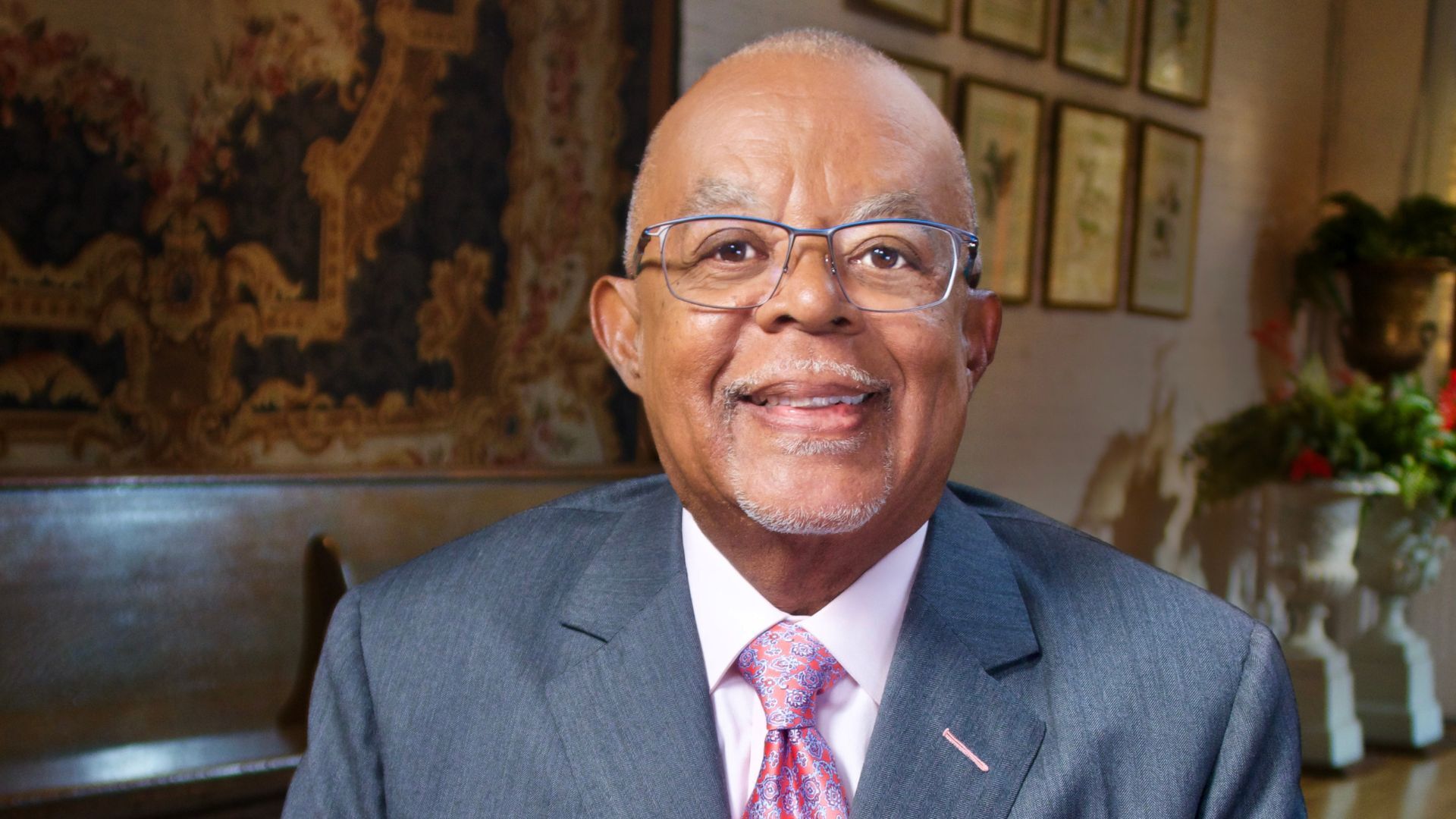Stories of Black Chefs, Food Innovators, and Culinary Historians
Food is love. Food is family. Food is culture. Food is history. Food is environmental science. Food is an ambassador and teacher. Okay, you can tell that we think food is just about everything. When it comes to our cultural heritage, however, the food we make and eat reveals a lot about where we come from, what we've achieved, and what we revere. Think back on how much you learned about your family while in the kitchen, or about history when learning a holiday recipe. Food holds so many memories that it's hard not to get nostalgic and emotional when talking about food from home. Honestly, we could talk about it forever, but we'll stop here and get right to the documentaries and cooking shows.
Knowing how connected our food is to our heritage, we wanted to spotlight seven taste makers to celebrate: from chefs who are making soul food classics new again to entrepreneurs and pioneers who helped move culinary arts forward while reminding us of the history attached to each dish.
Editor's Note: This page provides information about a variety of PBS shows and documentaries you can watch. It is being updated regularly, as new programs become available or are no longer available to stream on PBS.org or the PBS App.
Lucille B. Smith
Entrepreneur, chef, educator, and inventor Lucille B. Smith truly changed how millions of people cook. When she created the first boxed hot roll mix to be sold in grocery stores in the late 1940s, she paved the way for convenience cooking as we know it. Smith originally created the mix to help her community: she offered Lucille's All-Purpose Hot Roll Mix as a fundraiser for her church in Fort Worth, Texas. It was an immediate sensation and soon grocery stores were putting in orders.
Before she helped revolutionized dinner time for home cooks, she was an educator who helped develop college-level commercial foods programs for students at Prairie View A&M College. Lucille B. Smith nourished her community in Texas by cooking for them and by teaching others how to care for one another with the foods we make and share. She knew that preparing food was an act of love, one that she imparted with generations of cooks that came after her.
In this clip from The Migrant Kitchen, hear her great grandson, Chef Chris Williams, talk about Smith's positive impact on the culinary world.
Edna Lewis
To call Edna Lewis an influential chef is an understatement. Born and raised in Freetown, Virginia, she went on to popularize concepts like farm-to-table dishes and and seasonal cooking. Throughout her career, she raised awareness of the complexity, depth, and elegance of Southern cuisine.
Lewis was a trailblazing chef not only in her restaurants, but her cookbooks generously shared her incredible culinary knowledge. Edna Lewis published her first cookbook: "The Edna Lewis Cookbook," in 1972. It was arranged in menu form, according to the four seasons. Cooking with seasonal, local ingredients wasn't just a fad for Lewis, it was central to the Southern culinary traditions she carried forward. Her second cookbook built upon the recipes to include her personal stories in celebration of southern culture. The result was the venerated cookbook "The Taste of Country Cooking."
In this clip from Virginia Public Media's documentary: Finding Edna Lewis, James Beard Award-winning chef Mashama Bailey reveals how her Savannah restaurant takes daily inspiration from Edna Lewis.

The best of PBS, straight to your inbox.
Be the first to know about what to watch, exclusive previews, and updates from PBS.
Michael Twitty
Have you ever thought about how certain ingredients and dishes became staples in Southern cuisine? And why certain foods are made for particular holidays? How when family recipes are shared, they often come with rich stories about people and places. Author and chef Michael Twitty helps answer those questions. He teaches history and culture through food. His James Beard Award-winning book "The Cooking Gene: A Journey Through African American Culinary History in the Old South" was both a personal exploration of family history and a lesson on Southern food culture. It reveals how the history of slavery in this country is intertwined with many of the foods we know and love.
In this 2019 interview on The A List with Alison Lebovitz, Twitty discusses his work in food justice and as a culinary historian. You can also watch him in action in Williamsburg, Virginia in this clip from WHRO's Curate 757.
Leah Chase
Chef Leah Chase can be described as a Southern food icon, but she is often referred to as the Queen of Creole Cuisine. In the 1940s she turned her family's casual eatery into an elegant, fine dining experience- one that served Black patrons in a segregated South. Dooky Chase's Restaurant, served Creole dishes formed by the unique blending of cultures and flavors in Louisiana. The upscale restaurant became a meeting place for civil rights strategists and activists. Leah Chase also fed countless people on the front lines of the civil rights movement, often sending meals to imprisoned activists.
When Leah Chase died in 2019, she was remembered as a remarkable person who told New Orleanian history with her Creole cuisine. It can be said that her food helped change history, too.
You can watch Leah Chase cook the best fried chicken and sweet potato pie (with a pecan-flecked crust!) with Julia Child if you are a Passport member.
In the meantime, stream this episode of Nourish and find out what goes into a Louisiana Gumbo and what doesn't (cough, corn, cough). Let's be honest, there are few dishes more emblematic of New Orleans, Louisiana than gumbo. Learn how to make Louisiana's signature dish from chef Leah Chase.
Support your local PBS station in our mission to inspire, enrich, and educate.
Tiffany Derry
As a judge on The Great American Recipe, Chef Tiffany Derry always reminds us how connected our memories are to food. Whether we make a recipe that reminds us of family celebrations or we share a meal with people we love, the flavors in that moment carry the feelings in our hearts. In each episode, Derry invites viewers and contestants alike to really dig into how the family recipes honor those who came before us and pass on cultural knowledge at the same time.
Derry grew up in Texas, learning to cook with her grandmother on her family's farm. She worked in restaurants and later earned her culinary degree from the Art Institute of Houston. Her own restaurants honor her Southern food roots and the farm-to-table lifestyle she grew up knowing. In all her work, Chef Derry celebrates the fact that food brings people together as much it connects us to our past. Speaking of celebrations, you have to hear her talk about her block parties-- they sound amazing!
Jonny Rhodes
Soul food is recognizable in countless family kitchens, especially in the American South. Those classic recipes go back generations and often harken back to West African flavors. We also see variations of those dishes depending on the local community and their locally-sourced ingredients. And even the classics get remade and updated, the way Chef Jonathan "Jonny" Rhodes is doing in Houston, Texas. His focus on sustainability and maintaining access to local foods is as much a priority as is celebrating traditional soul food dishes.
In this clip from No Passport Required, Chef Rhodes discusses taking the reins from African-American soul food pioneers and their industrious use of available ingredients. He demonstrates his creativity, cooking a dry-aged heritage pheasant filled with jollof rice, and finishing with a dessert of emulsified candied yams, pecan butter, granola, and torched marshmallows.
B. Smith
Do you know the story of a supermodel who broke racial barriers in the fashion world, then later turned her focus to being a multi-hyphenate lifestyle icon and restaurateur? Barbara Elaine "B." Smith knew the cultural power of food and applied her media knowledge to build a portfolio of books, home goods, and restaurants. Her eponymous restaurants in Washington, D.C. and New York became well-known for supporting the careers of promising young Black chefs and for hosting high-profile artists and politicians in the dining rooms. The fine dining establishments proudly served soul food for 20 years. Smith cemented her status as a soul food ambassador in 2012 when she was inducted to the American Chef Corps, part of the U.S. Department of State's Diplomatic Culinary Partnership with the James Beard Foundation.
When Smith died in 2020 from complications of early-onset Alzheimers's Disease, she had earned awards and accolades across fashion, broadcast, retail, publishing, and restaurant industries. After her Alzheimer's diagnosis at the age of 62, she and her husband Dan Gasby embarked on a mission to support and raise awareness about early onset Alzheimer's. B. Smith was truly a trailblazer her entire life and will always be remembered for serving soul food with style. After all, her signature tagline was: “Whatever you do, do it with style!”
In this 2016 interview KET's show Connections did with Smith and her husband, they talked about the book they wrote together titled "Before I Forget." It is a love story, their love story, and speaks to families who are care-givers for loved ones.



